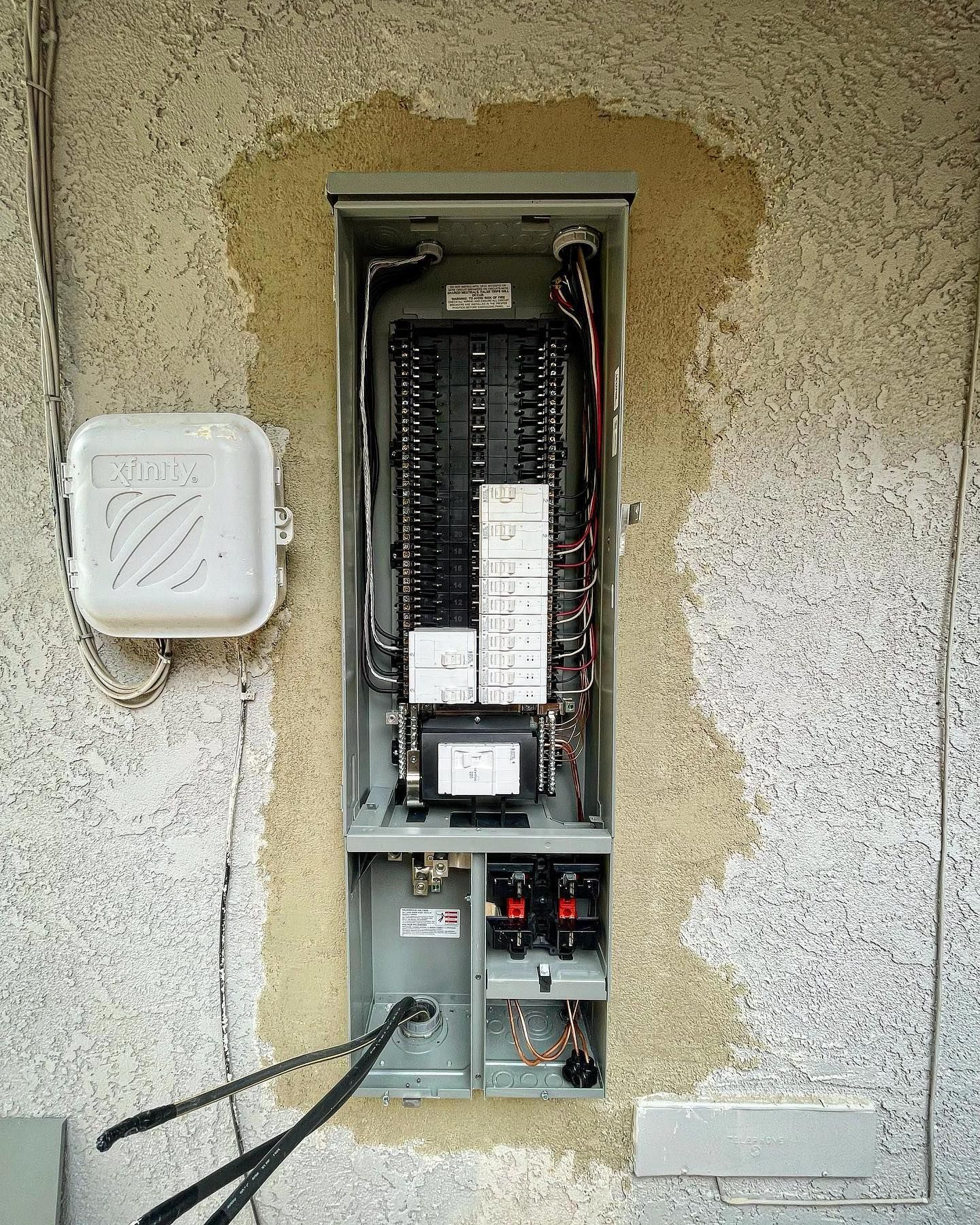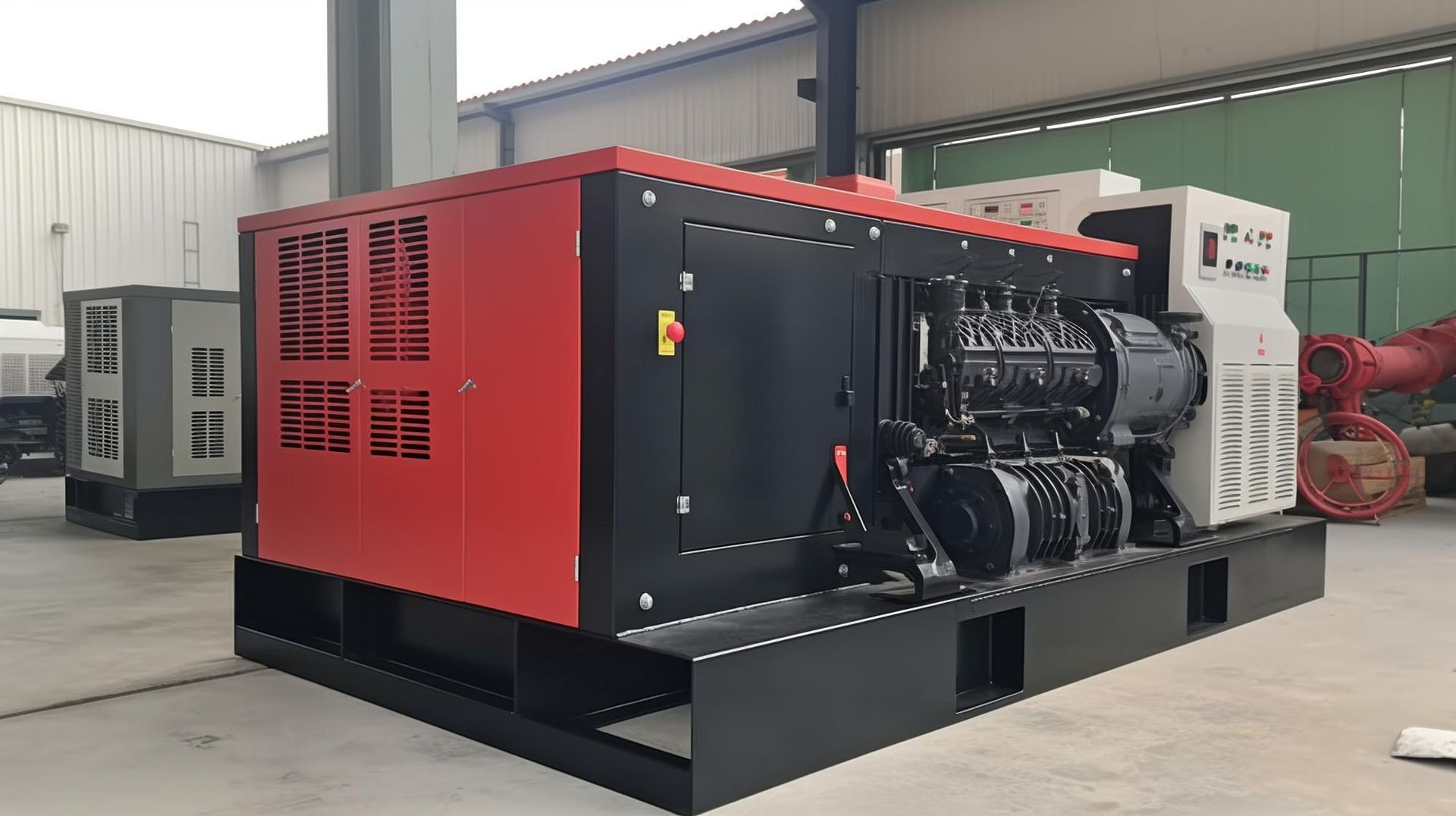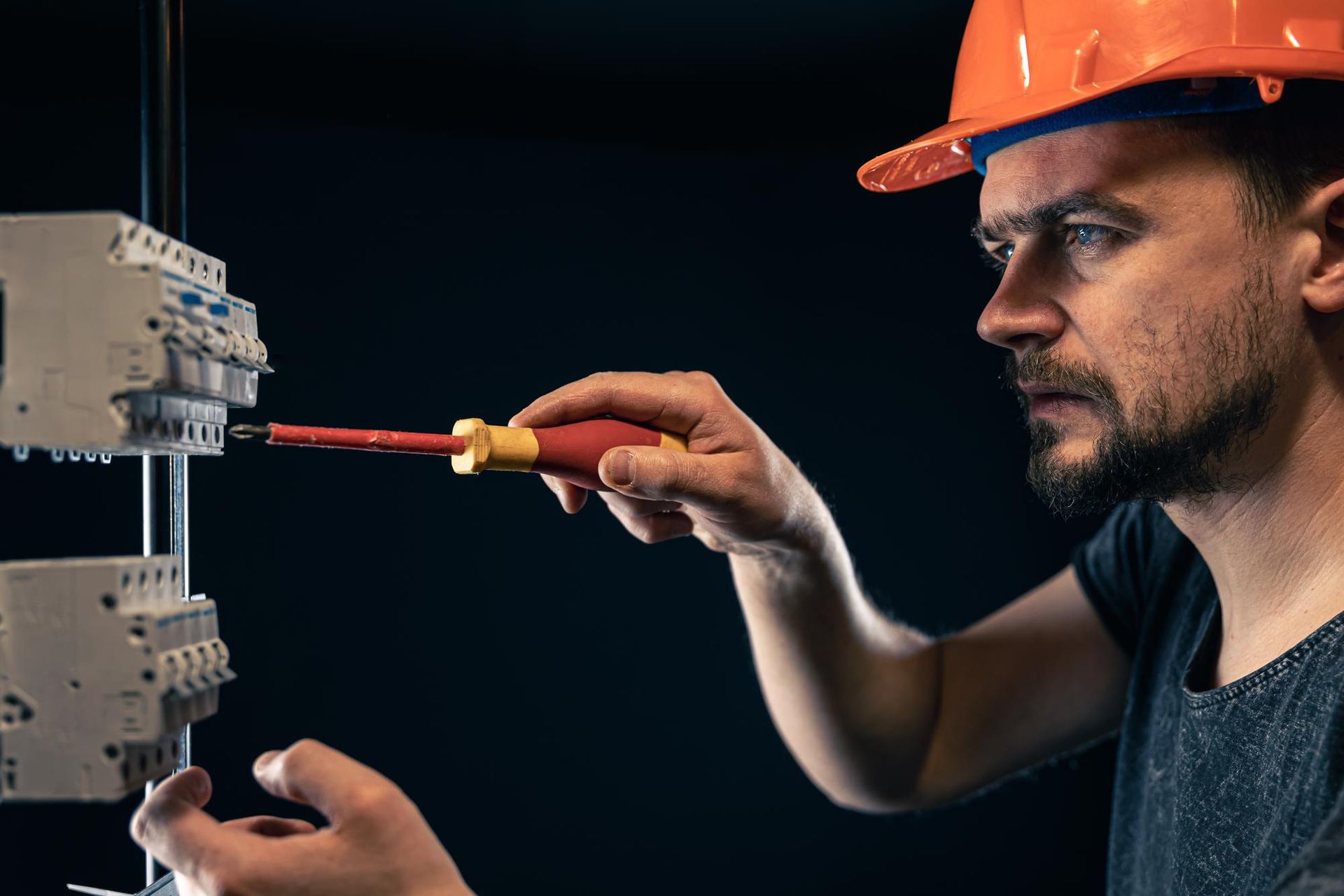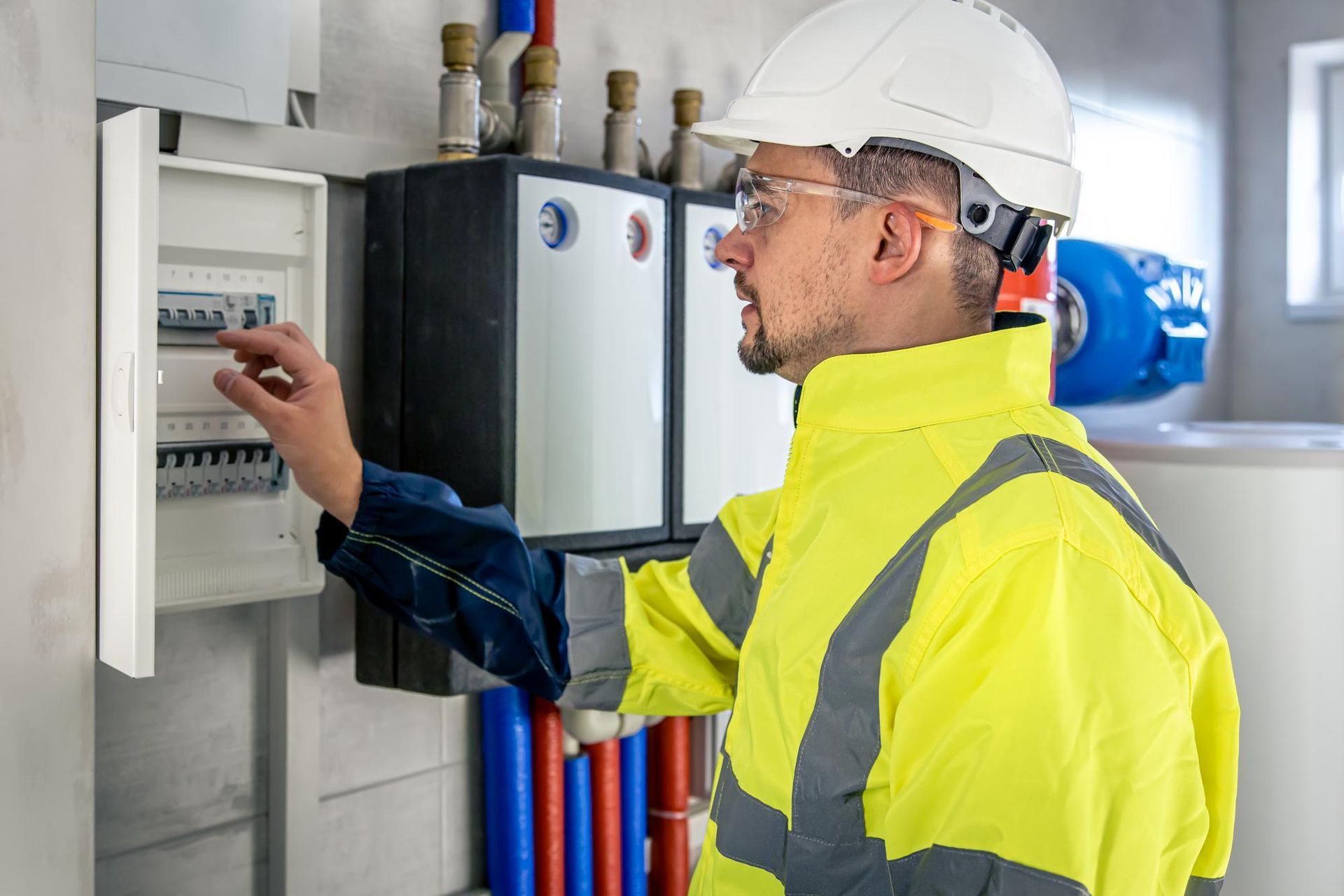Sacramento, CA
5 Essential Tips for Handling Emergency Electrical Situations at Home
In today's fast-paced world, where electricity is an integral part of our daily lives, understanding how to manage emergency electrical situations at home has become crucial. Emergency electrical scenarios, whether it’s a sudden power outage, a tripped circuit, or more alarming issues like electrical sparks or shocks, are not just inconvenient; they can pose serious risks. The importance of being prepared for such emergency electrical events cannot be overstated. Every household should have a basic understanding of how to handle these emergency electrical situations effectively and safely.
In this article, we delve into the vital topic of emergency electrical safety, providing you with five essential tips to confidently and securely handle emergency electrical situations at home. From identifying the first signs of an emergency electrical problem to taking the right actions to mitigate risk, these tips are designed to equip you with the knowledge necessary to protect yourself, your family, and your home from the potential hazards of emergency electrical issues. Remember, being prepared for an emergency electrical situation is not just about immediate response; it's about ensuring long-term safety and peace of mind in your home.
Recognizing an Electrical Emergency
When it comes to handling emergency electrical situations at home, the first and most critical step is recognizing that you have an emergency on your hands. Identifying an emergency electrical situation promptly can be the difference between a minor inconvenience and a major disaster. Here are some common signs that indicate you are facing an emergency electrical situation:
- Sparks or Flames from Outlets or Wiring: One of the most obvious signs of an emergency electrical situation is the presence of sparks or flames coming from outlets, wiring, or electrical appliances. This is a clear indicator of a serious problem and requires immediate attention. Sparks can quickly lead to electrical fires, which not only endanger your home but also pose a significant risk to personal safety.
- Burning Smells or Unusual Odors: If you detect a burning smell or any unusual odor coming from an outlet, switch, or any electrical device, it could be a sign of overheating or wiring problems. These odors often resemble the smell of burning plastic and indicate that electrical components might be melting or burning internally, which can quickly escalate into a major emergency.
- Frequent Circuit Breaker Trips: Circuit breakers are designed to protect your home by tripping when a circuit is overloaded. However, if you find that your circuit breakers are tripping frequently, it's a sign that your home's electrical system is struggling to handle the load. This could be due to a variety of issues, including faulty wiring or an overburdened electrical system, and it warrants immediate professional attention.
- Flickering or Dimming Lights: While flickering or dimming lights might seem like a minor issue, they can sometimes be a symptom of a larger emergency electrical problem. This could be indicative of poor wiring connections, a malfunctioning breaker, or an overloaded circuit. Consistent flickering should not be ignored, as it could lead to more serious electrical issues.
- Electrical Shocks: If you receive a mild shock or tingle when touching an appliance, a wall switch, or an electrical outlet, it’s a sign of a potential electrical hazard. This usually indicates a grounding issue and can lead to more serious shocks if not addressed immediately.
The importance of quickly identifying these signs of an emergency electrical situation cannot be overstated. Early recognition and response can prevent hazards such as electrical fires, serious property damage, or personal injury. When you notice any of these signs, it's crucial to act swiftly. Turn off power to the affected area at the circuit breaker, and call a professional electrician to inspect your home’s electrical system. Remember, when it comes to emergency electrical situations at home, it’s always better to be safe than sorry.
Cutting Off the Power Source
In the realm of handling emergency electrical situations at home, one of the most crucial actions you can take is to safely cut off the power source. This step is vital in preventing further hazards and protecting your home and family. Here's a step-by-step guide on how to safely shut off the main power supply, along with scenarios when it is necessary to do so:
Step-by-Step Guide to Shutting Off the Main Power Supply
- Locate Your Electrical Panel: The first step is to locate your home's electrical panel. This is usually found in the basement, garage, or a utility room. It's essential to know where this is before an emergency occurs.
- Identify the Main Power Switch: Within the panel, look for the main power switch. This is usually a larger switch at the top or bottom of the panel and is distinctly marked.
- Turn Off Individual Circuit Breakers: Before turning off the main power, it's a good practice to switch off individual circuit breakers. This helps prevent a surge when the power is restored.
- Shut Off the Main Power: Once all individual circuits are off, flip the main power switch to the 'off' position. This action cuts off electricity to your entire house.
- Verify Power is Off: Check various electrical appliances or lights to ensure that the power is indeed off. It's crucial to be certain before proceeding with any emergency electrical work.
When to Cut Off Power
Knowing when to shut off the main power is as important as knowing how. Here are some scenarios when it is necessary:
- Electrical Fire: If there's an electrical fire, cut off the power immediately if it's safe to reach the panel. This can help prevent the fire from spreading due to electrical sparks.
- Flooding: In the event of home flooding, especially if water is near electrical outlets or your panel, shutting off power is crucial to prevent electrical shocks.
- Exposed Wires: If you notice exposed or frayed wires, turn off power to that area, as they can cause shocks or fires.
- Major Appliance Issues: If a major appliance starts emitting smoke or overheating significantly, shut off power to that circuit or the entire house if you're unsure.
When It's Safe to Leave Power On
There are times when it’s safe to leave the power on, such as:
- Minor Trips or Overloads: If a circuit breaker trips due to a minor overload, it may not be necessary to shut off the entire power. Resetting the specific breaker might suffice.
- Scheduled Maintenance: If a professional electrician is conducting routine checks or maintenance, they will manage the power as necessary.
Knowing how and when to cut off the main power supply during emergency electrical situations is a critical skill for homeowners. This knowledge not only helps in preventing further damage but also ensures the safety of everyone in the home. Always remember, if you're ever in doubt about the safety of an electrical situation, it’s best to err on the side of caution and consult with a professional electrician.
Using Safety Equipment in Emergency Electrical Situations
When dealing with emergency electrical situations at home, your safety should always be the top priority. Apart from recognizing the problem and cutting off the power source, the proper use of safety equipment is vital. Here’s a guide to the essential safety equipment you should have on hand, and instructions on how to use them effectively during an electrical emergency.
Essential Safety Equipment for Handling Emergency Electrical Situations
- Rubber Gloves: These are critical for protecting your hands from electric shocks. Ensure they are high-quality, electrically-insulated gloves.
- Safety Goggles: Protecting your eyes is crucial, especially in scenarios where sparks or debris may be present. Safety goggles provide a barrier against potential eye hazards.
- Insulated Tools: If you need to handle any electrical components, use tools with insulated handles. These tools are designed to prevent electrical current from reaching you.
- Non-Conductive Shoes: Shoes with rubber soles can help reduce the risk of electrical shock, especially in wet conditions.
- Flashlight: In case of power outages, have a reliable flashlight handy to navigate safely and to avoid using candles which can be a fire hazard.
During an Electrical Emergency:
- Rubber Gloves: Wear them before touching any electrical panel, switch, or device. Ensure they are dry and free from tears or punctures.
- Safety Goggles: Put them on before inspecting any electrical issue, especially if you suspect there might be sparks or flying debris.
- Insulated Tools: Use these tools for any adjustments or repairs you are qualified to make. Remember, if the situation is beyond your knowledge, it’s best to wait for a professional.
- Non-Conductive Shoes: Wear them to provide an extra layer of protection against electrical shocks, especially in damp environments.
- Using a Flashlight: Rely on your flashlight for visibility. Never use water to douse electrical fires, and avoid using candles as they can ignite other materials.
Having and knowing how to use the right safety equipment is a crucial part of effectively managing emergency electrical situations at home. These tools act as your first line of defense against potential electrical hazards. Remember, while it’s important to be prepared to handle minor issues, always prioritize calling a professional electrician for serious electrical emergencies. Safety should never be compromised, and being well-equipped is a key step in ensuring that.
Evacuating Safely if Necessary in Emergency Electrical Situations
In the continuum of dealing with emergency electrical situations at home, an often-overlooked aspect is knowing when and how to safely evacuate your house. While most electrical issues can be managed without leaving your home, there are certain circumstances where evacuation is the safest option. Here are some guidelines for deciding when to evacuate and tips to ensure a safe evacuation, especially highlighting the importance of avoiding water and metal objects.
When to Evacuate Your House
Electrical Fire That Cannot Be Contained: If an electrical fire breaks out and you can't contain it with a fire extinguisher or it's spreading rapidly, it's time to evacuate immediately.
- Major Flooding: In situations where there’s major flooding, especially near electrical systems or appliances, the risk of electrocution becomes high. It’s safer to leave the premises.
- Exposed Live Wires: If you encounter exposed live wires and there's a risk of electrocution, vacating the area is the safest course of action.
- Smell of Burning or Overheated Wiring: When you notice a persistent burning smell or suspect overheating of wiring that you can't locate or control, evacuate and call emergency services.
Tips for a Safe Evacuation
Turn Off the Main Power, If Possible: If you can safely reach your main power switch without risk, turn it off to reduce the hazard.
- Avoid Water and Metal Objects: During an electrical emergency, water can conduct electricity, and metal objects can become energized. Steer clear of them while evacuating.
- Use Non-Conductive Paths: If possible, walk on wooden or rubber surfaces as you leave the house. Avoid walking through water.
- Leave Belongings Behind: In an emergency, prioritize safety over possessions. Don't waste time gathering items.
- Exit Safely and Quickly: Identify the safest and quickest route to exit your home. Practice this evacuation route with family members so everyone is prepared.
- Gather at a Predetermined Meeting Point: Once outside, go to a pre-arranged meeting point at a safe distance from the house. This ensures you can account for all household members.
- Call for Help Once Safe: Once you’re at a safe distance, call 911 or your local emergency services to report the situation.
Knowing when and how to evacuate safely during an emergency electrical situation is a critical aspect of home safety. While the hope is that you never have to use this information, being prepared can make a significant difference in the safety and well-being of your family. Remember, no electrical issue is worth risking your life for. When in doubt, evacuate and seek professional help.
Contacting Emergency Services and a Licensed Electrician in Emergency Electrical Situations
In the critical moments of handling emergency electrical situations at home, knowing when and how to contact emergency services and the importance of consulting a licensed electrician can make a significant difference. This final piece of advice is essential for ensuring long-term safety and preventing future electrical hazards.
When and How to Contact Emergency Services
Immediate Danger or Fire: If there is a fire that you cannot control, or if there is a life-threatening situation due to electrical issues, call emergency services immediately.
- Injuries: If someone has been injured due to an electrical accident, such as an electric shock or a fire, it is crucial to call for emergency medical help.
- Major Electrical Hazards: Situations like exposed live wires, major electrical surges, or significant damage to your home's electrical wiring necessitate a call to emergency services.
- How to Call for Help: Keep your local emergency numbers handy and call them without delay. Provide clear information about the situation and follow any instructions given by the dispatcher.
Importance of Consulting a Licensed Electrician
After ensuring immediate dangers are addressed, the next step is to consult a licensed electrician. Here's why:
- Professional Assessment: A licensed electrician has the expertise to assess the damage or issue safely and thoroughly. They can identify the root cause and the extent of the problem.
- Safe Repairs: Attempting DIY repairs can be dangerous and may worsen the situation. Licensed electricians have the right tools and safety equipment to handle repairs properly.
- Preventing Future Issues: An electrician can not only fix the immediate problem but also check for potential future hazards, helping you avoid further emergency situations.
- Compliance with Safety Standards: Licensed electricians are knowledgeable about local safety codes and standards. Their work ensures that your electrical system complies with these regulations, keeping your home safe.
In the event of an emergency electrical situation, promptly contacting emergency services can be lifesaving, especially in scenarios of immediate danger. Following up with a licensed electrician is equally important to ensure that your
electrical system is safe and up to code. Handling emergency electrical situations responsibly involves recognizing when professional intervention is needed. Remember, your safety and the safety of those around you is paramount. Always opt for professional assistance in these critical situations to ensure peace of mind and long-term safety in your home.
Conclusion
Safety in the home is a collective responsibility. At AO Electric Inc., we understand the importance of educating all household members about electrical safety tips. We encourage conducting regular discussions or drills to ensure everyone, including children, knows what to do in an emergency electrical situation. Familiarize them with the location of the electrical panel, teach them the importance of not overloading sockets, and discuss the basics of using safety equipment.
Dealing with emergency electrical situations at home can be daunting, but with the right knowledge and preparation, you can ensure the safety and well-being of your family. Remember, prevention is always better than cure. Regular electrical maintenance, awareness, and preparedness are your best defenses against electrical emergencies. Stay safe, and make electrical safety a priority in your home. For expert guidance and services in Sacramento, CA, don't hesitate to contact us at AO Electric Inc.,
(916) 531-6398. We're here to help!















